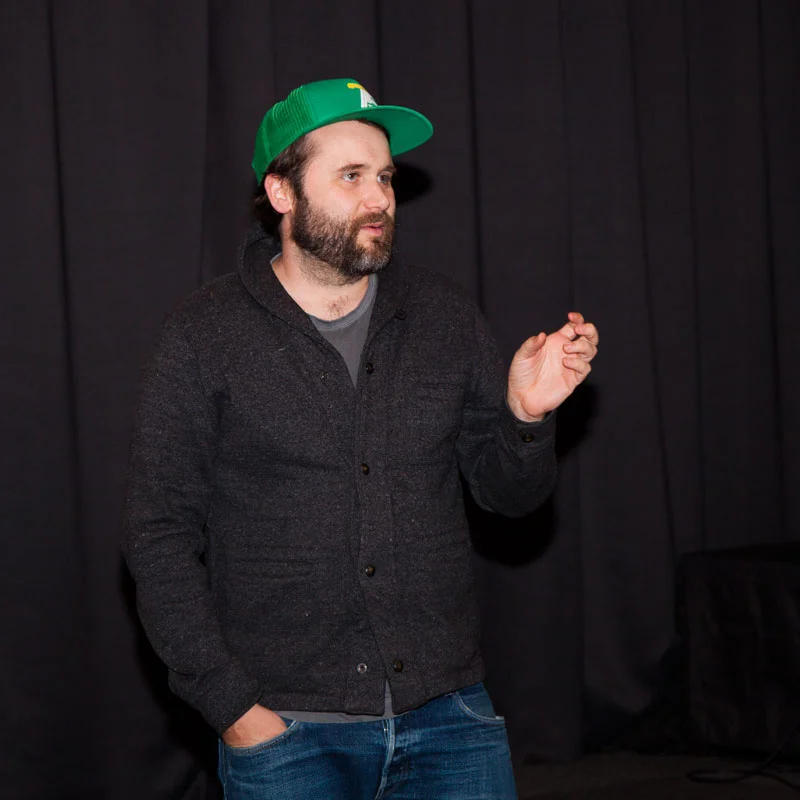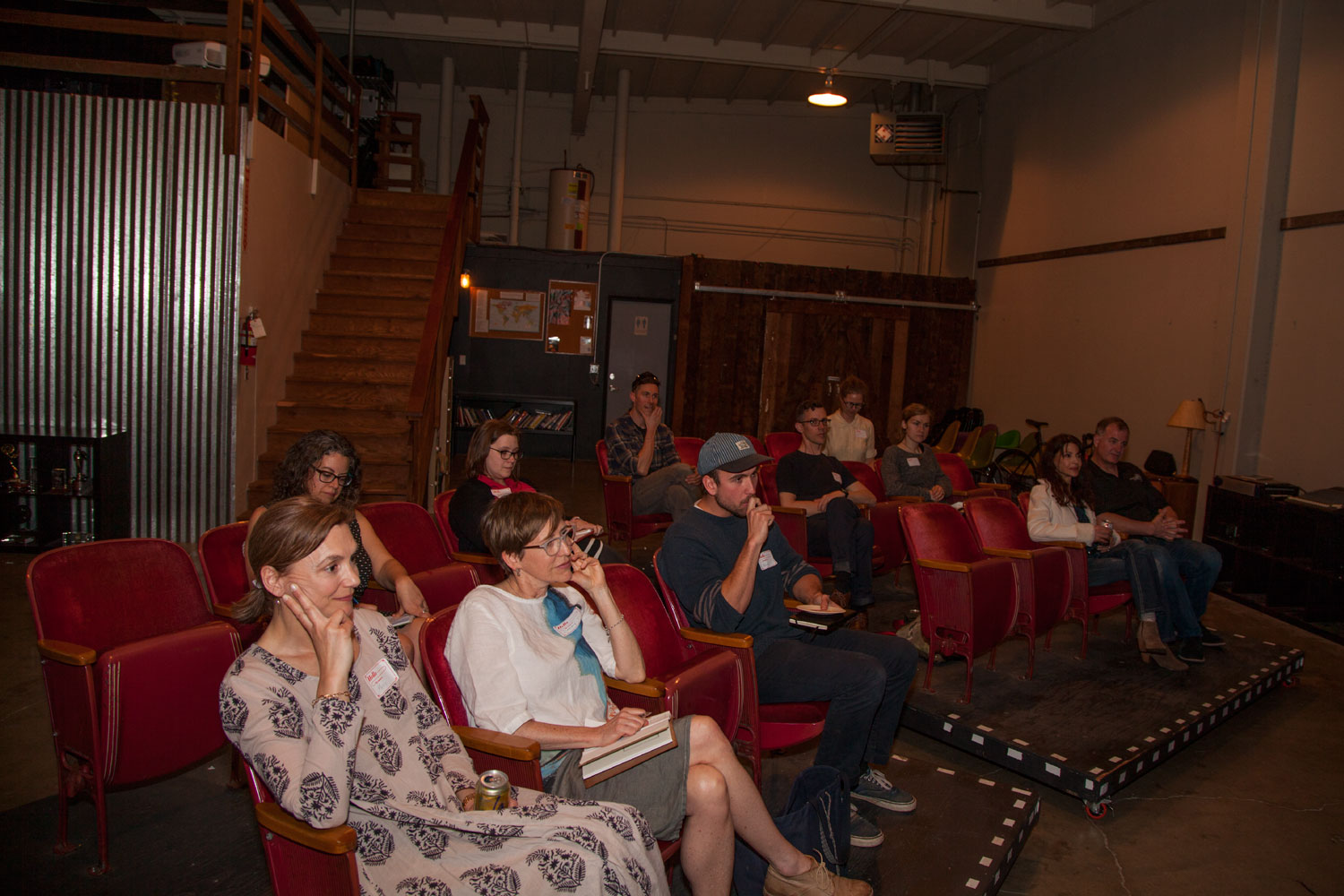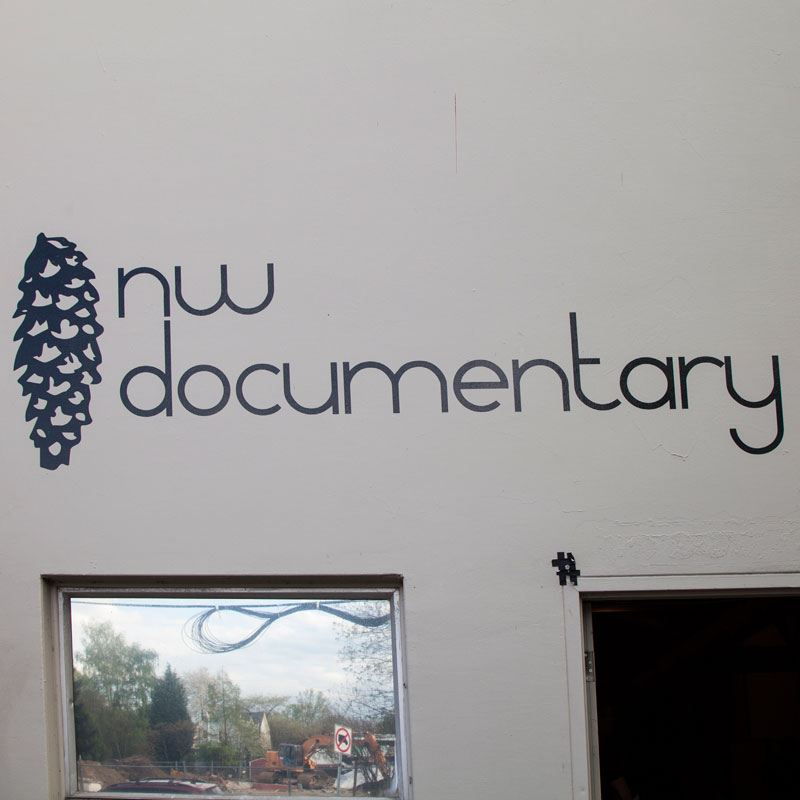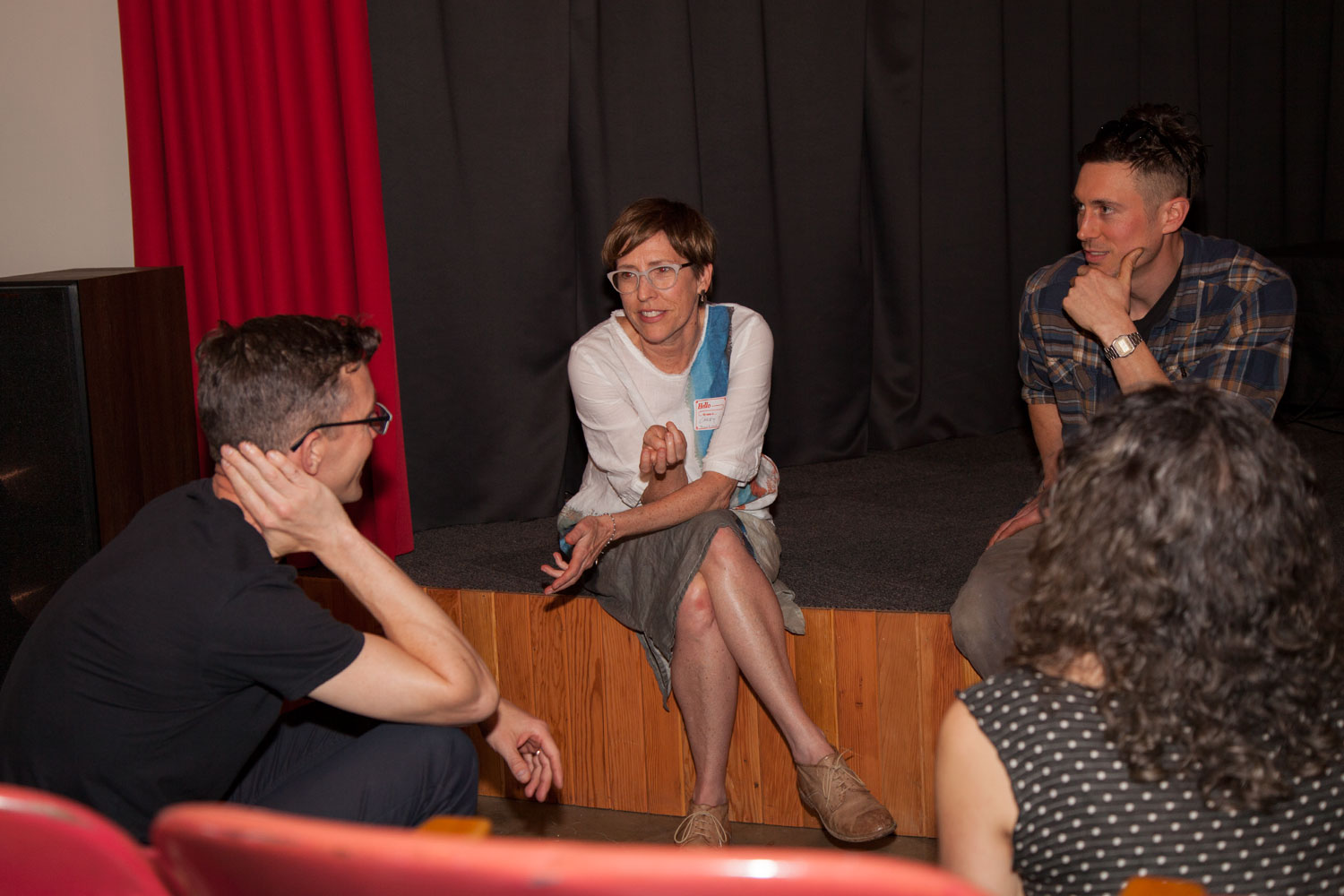30 Seconds, Go!
For a special supplemental Maker event, Director Meghan Sinnott invited her colleague Nicholas Kessler, an improv and communications coach (and host of Portland’s The Moth StorySLAM), to help makers master the elusive elevator pitch.
With a background in teaching and experience coaching groups ranging from the Hillsboro Police Department to doctors, Kessler brought a ton of energy, perspective, and hands-on activities to NW Documentary on April 18.
Before diving into the night’s presentation, NW Documentary’s director, Sam Gaty, gave us a brief overview of his organization’s mission and workshops, encouraging makers to check out their core offering, DIY Documentary. The next session begins in September, and Gaty stressed that the organization’s aim is to provide technical support so that everyone can tell their own stories, something many makers could find useful.
After a quick round of introductions, Kessler got the group up for a series of improvisation-based drills, including games such as Ape Circle, a game that delves into the discomfort of being closely scrutinized and imitated, and Pass the Clap, a game of trust, eye contact, and anticipation.
Kessler next broke the group off into pairs for a series of 60-second rants—individuals were asked to vent their frustrations about their businesses to their partners, who would then respond with “Sounds like what matters to you . . . ” The exercise helped makers hone in on what is driving their frustrations and where they need to focus their energy to get to the next level. Next, the pairs were asked to engage in 60-second raves. Ravers were asked to start with their name, their role, and their goal[s] and move on from there. Again, their partners responded with “Sounds like . . . “
Having already gained insight and tools from these activities, workshop attendees were further treated to more of Kessler’s tricks for mastering pitches (and communication in general). Some key takeaways included:
Words alone only make up 7% of communication. Physicality dominates, accounting for 55%, and tonality makes up another 38%. “This is why we invented emojis [for email and text communication],” Kessler says. Words don’t do a whole lot to convey what you mean, and we as human beings need other context clues to help us figure it out.
Try to replace “I’m sorry” with “Thank you.” “I’m sorry” conveys a sense of guilt and might turn your audience toward blame; “Thank you” is a flattering alternative that immediately shows you value them.
Keep your head still when you talk. This conveys status and brands you as confident. Similarly, keeping your hands above your waist shows you are in control (behind your back exhibits the most confidence and trust of your situation).
Your role is more resonant than your title. Listing specifically what you do and how you contribute to your brand is far more impactful than the inevitable vagueness of a title.
Kessler finished off the evening with one last shot for a few makers to give an elevator pitch, first in a 60-second format and then in a condensed 30-second format. All in all, attendees walked away with clarity around how to best present themselves when talking about their projects and products.
If you missed this meetup, be sure to check out Nicholas Kessler’s work with The Moth and The Liberators—you might see some of his tricks in action! And be sure to watch for more Portland Made events.
__
Words by Katey Trnka
Photography by Sarah Toor








